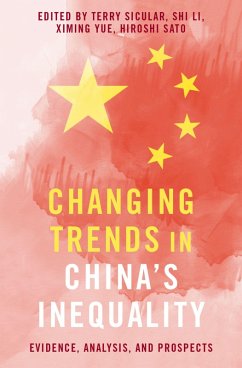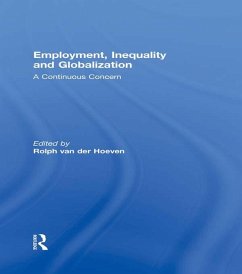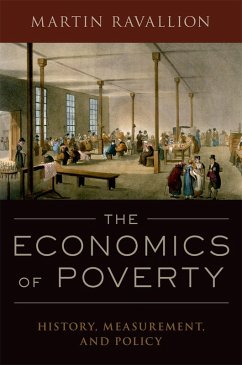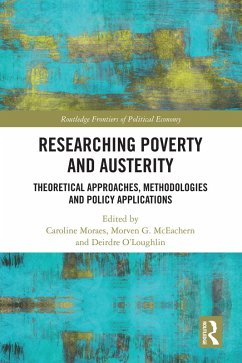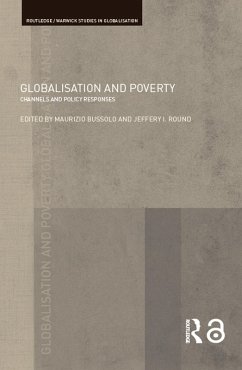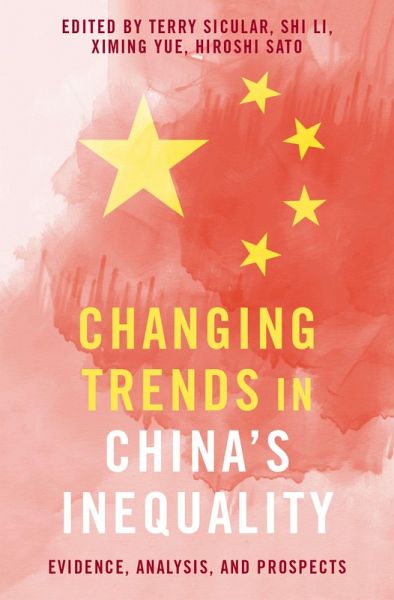
Changing Trends in China's Inequality (eBook, ePUB)
Evidence, Analysis, and Prospects
Redaktion: Sicular, Terry; Sato, Hiroshi; Yue, Ximing; Li, Shi
Versandkostenfrei!
Sofort per Download lieferbar
64,95 €
inkl. MwSt.
Weitere Ausgaben:

PAYBACK Punkte
32 °P sammeln!
Over the past quarter-century China has seen a dramatic increase in income inequality, prompting a shift in China's development strategy and the adoption of an array of new policies to redistribute income, promote shared growth, and establish a social safety net. Drawing on of household-level data from the China Household Income Project, Changing Trends in China's Inequality provides an independent, comprehensive, and empirically grounded study of the evolution of incomes and inequality in China over time. Edited by leading experts on the Chinese economy, the volume analyzes this evolution in ...
Over the past quarter-century China has seen a dramatic increase in income inequality, prompting a shift in China's development strategy and the adoption of an array of new policies to redistribute income, promote shared growth, and establish a social safety net. Drawing on of household-level data from the China Household Income Project, Changing Trends in China's Inequality provides an independent, comprehensive, and empirically grounded study of the evolution of incomes and inequality in China over time. Edited by leading experts on the Chinese economy, the volume analyzes this evolution in China as a whole as well as in the urban and rural sectors, with close attention to measurement issues and to shifts in the economy, institutions, and public policy. Specific essays provides analyses of China's wealth inequality, the emergence of a new middle class, the income gap between the Han majority and the ethnic minorities, the gender wage gap, and the impacts of government policies such as social welfare programs and the minimum wage.
Dieser Download kann aus rechtlichen Gründen nur mit Rechnungsadresse in A, B, BG, CY, CZ, D, DK, EW, E, FIN, F, GR, HR, H, IRL, I, LT, L, LR, M, NL, PL, P, R, S, SLO, SK ausgeliefert werden.




